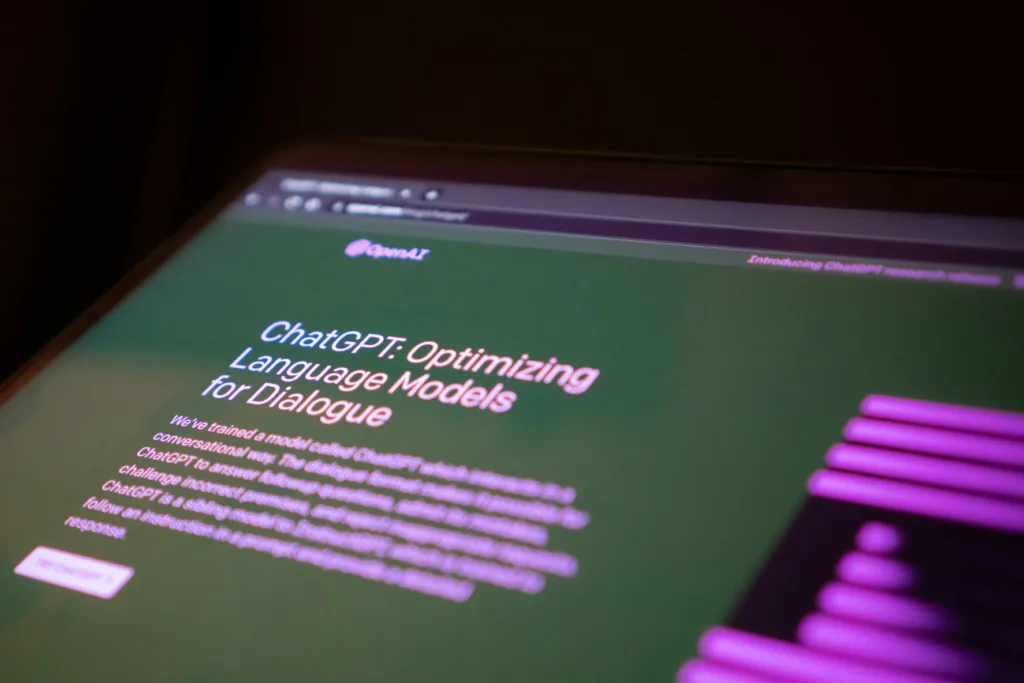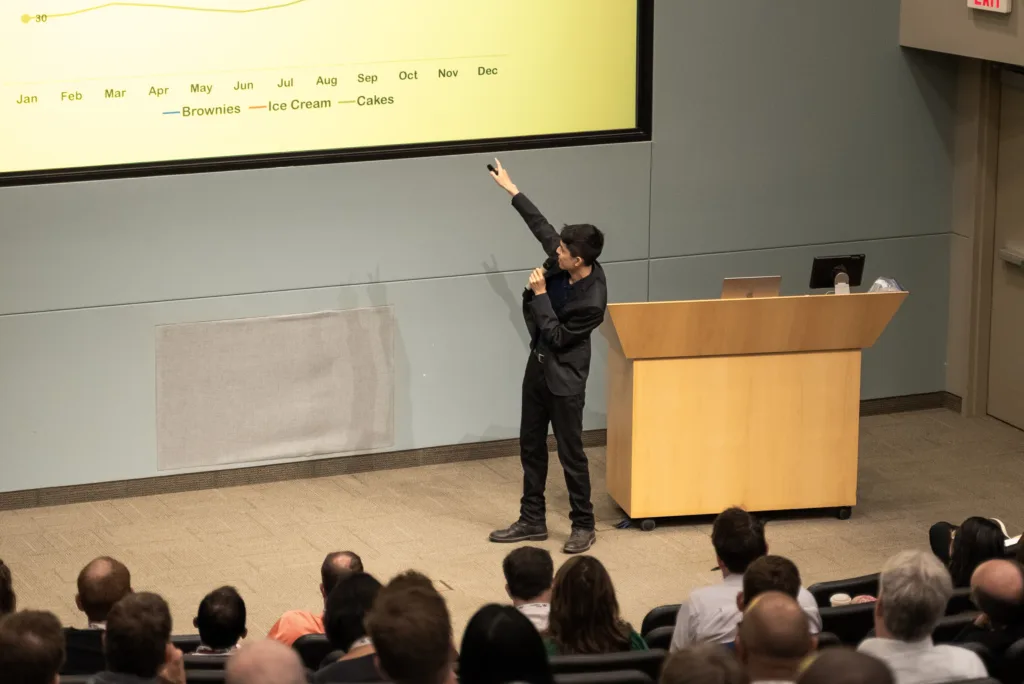Generative AI like ChatGPT has disrupted industries around the world and continues to develop at a rapid pace. It can write essays, code in any language, and respond just like a human being. The natural question for many of us, especially in technical domains is: When will it take my job?
In this article I’d like to change the focus from “how will AI negatively affect my career” to “how can I use it to future-proof my employment prospects?” Human communication skills, after all, will become vital in a world dominated by AI automation. I will explain exactly how you can use AI to enhance those skills in 3 new ways through the perspective of 3 adjacent industries.
First: Law
Many lawyers – you’d be surprised to know – are thrilled about AI automation. A study was conducted in which 20 lawyers competed with an AI to see who was better at identifying errors in non-disclosure agreements:1
- The study found the AI got average 94% accuracy vs the human lawyers’ 85%
- It also completed the task in an average of 26 seconds vs their 92 minutes
That’s a phenomenal feat.
But the lawyers from the study were not concerned. When Hacker Noon reached out to them for their thoughts on the results, they cited AI as a way to:
- Automate simple document review
- Reduce costs
- Make more time available for complex tasks
In other words, AI won’t take lawyer’s jobs. It will just make them more efficient. With the help of AI, lawyers can focus on critical, non-automatable activities like verbally communicating and delivering arguments in the courtroom.
In your role:
Consider ways AI can take away the drudgery of simple, time-consuming tasks.
- Maybe it can help you create boilerplate code or jumpstart creating presentations.
Consider how spending more time on communication could enhance your relationships with stakeholders and increase your visibility to the business.
For more detail on the science behind effective business communication , read more here.
Second: Medicine
Medicine is another field undergoing major shifts due to the introduction of AI. A 2019 study of 236 patients found that:2
- 71% believed doctors did not treat them compassionately
- 63% felt doctors did not satisfactorily answer their questions
That all changed once ChatGPT was introduced in 2022.
The Journal of the American Medical Association conducted a test, evaluating doctors’ and ChatGPT’s ability to provide answers to 195 medical questions.3 A team of healthcare professionals found that:
- An average of 45% of the AI’s responses were empathetic vs 5% of doctors
- An average of 79% of the AI’s responses were good quality vs 22% for doctors
AI clearly wins here, and reveals the communication gap that exists not only in the medical industry, but across industries. Professionals are not often given training to respond in an empathetic, detailed way that other people are receptive to. AI, on the other hand, has been trained on the entire corpus of the Internet to know exactly how to do that.
In your role:
Consider using tools like ChatGPT to enhance your communication:
- If you have a request for your boss, consider using ChatGPT to analyze your message for tone, clarity, and persuasiveness. Perhaps it can be phrased even more effectively.
- If you have critical feedback for an employee, consider using ChatGPT to analyze what you plan to say. Perhaps it can be made more direct or empathetic.
Studies in the medical field have shown patients are twice as likely to be loyal to a hospital not because of quality of care necessarily, but because of good interpersonal relationships with staff.2 Imagine what effective communication would do in your domain of expertise.
For more information on not only effective communication, but effective listening for stakeholder management, read more here.
Third: Therapy
As a final insightful industry perspective, consider therapy. As in the legal domain a lot of the manual, repeatable tasks therapists do, such as note organization, can be automated away. But communication with the patient and building a relationship with them is the fundamental human aspect AI cannot yet touch.
In several studies examining the performance of therapists vs ChatGPT, trained professionals found ChatGPT’s responses to be lackluster.
One article published in Nature:
- Detected ChatGPT’s bias toward recommending certain treatment options, like cognitive-behavioral therapy, over others that might be better suited for a patient’s condition.4
Another article published by Columbia University:
- Found ChatGPT typically gave decent textbook answers that empathized with patients, similar to the studies we overviewed in the previous section for the medical domain.5
- But missed several opportunities a trained professional would have taken, such as connecting different parts of a patient’s story to identify a deeper root cause.
ChatGPT is trained on the language of the Internet but knowledge of language does not equal understanding of its content. What distinguishes us as humans is our ability to not only understand what language means, but also generalize what we know to unfamiliar domains: we discover new relationships that never existed in our “training data”.
In your role:
Don’t only consider how AI can make you more efficient by simplifying tasks and enhancing your communication. Also consider what you, with your human mind and experiences, have to uniquely offer that AI cannot replace.
- For therapists, it is a rich understanding of their patients’ background and experiences that enables them to reach perceptive conclusions.
- For you it could be your knowledge of the business that serves as a differentiator. While ChatGPT would only be capable of coming up with a generic set of questions to ask your stakeholders, you, with your understanding of the business, could anticipate the direction they want to go based on past encounters.
You would be able to make connections between pain points and business priorities an AI bot could never dream of making.
For more practical tips on improving business communication, read more here.
Summary
If you take the right steps to use AI to your advantage, you can make yourself not just AI-proof, but AI-competent:
AI will inevitably automate certain (sometimes large) portions of our jobs
- Identify the repeatable tasks you could hand over to make your higher priority work more efficient, and give you more time to focus on building interpersonal relationships.
AI tools like ChatGPT can help us communicate more empathetically with our colleagues and stakeholders.
- Use these tools to adjust tone, wording, and structure to maximize the impact of your writing and presentations.
AI can do a lot of things faster than humans can. But it cannot replace your ability to think critically and creatively, and build trust with others through your communication.
- Developing those human skills are what will set you apart in an AI-centric future.
If you’re looking for further guidance on how to differentiate your communication skills and stand out in the workplace, reach out to me here.
Sources
1 Inc, “An A.I. Just Outperformed 20 Top Lawyers (and the Lawyers Were Happy)”
2 MDLinx, “Survey Reveals Which Quality Doctors Lack”
4Nature, “The usefulness of ChatGPT for psychotherapists and patients”



